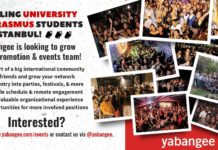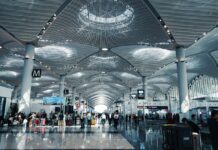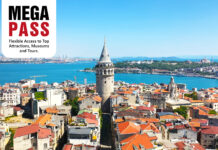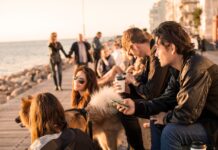“Home is where your heart is,” they say, but what if your heart is divided across continents? Mine certainly feels that way. I belong to three nations, each a world of its own, rich with distinct cultures, traditions, tongues, and spiritual paths. I am a child of the sun, the snow, and the mountains. My father is Lebanese, my mother Russian—two worlds apart, yet they met and made a life. I was born and raised in Bamako, Mali, where dusty streets, warm smiles, and sunny days shaped the beginning of my story.
Now living in Istanbul, a city that literally bridges Europe and Asia, I find myself at yet another crossroads. Istanbul holds multitudes, just as I do. Its ancient mosques and bustling ferries, its layered history and modern pulse make space for complexity. Here, I feel seen. In this city of bridges, I have found not just a home, but a reflection, a place where my many identities can meet, speak and belong. Every neighborhood’s feels like a new conversation between past and present, between where I come from and where I am going. In Istanbul I am not asked to choose one version of myself, I am allowed to be all of them. I have found a place that understands what it means to belong to many worlds at once.

My journey began 23 years ago in my homeland and my beloved country, Mali. When I grew up, I never thought that I was something else other than Malian. For me, I was Malian, and that’s it. As time passed, I started to notice that I didn’t look like the other kids around me. Our faces, complexions, and features were different. My father told me I was Lebanese, my mother that I was Russian, and that was hard to process for a child. It’s a mix that sounds exotic, but the reality is a constant negotiation of identities. I often feel like a nomad, forever caught between universes. When I was going to Lebanon for holidays, I remember having this weird feeling of “not fitting in.” Yes, I look like them, yes, we have the same physical characteristics, but they are not my people. I didn’t feel connected to them; I felt like a stranger among my relatives. In Lebanon, I was always the Lebanese that doesn’t speak Arabic—my father was sometimes the Google Translate between me and the others. “How come you don’t speak Arabic???” was the question I was asked the most. I don’t speak either Arabic or Russian; I speak French, Bambara, and English. I don’t even remember when I went to Russia because I was too young, and I have no contact with my family who live there. We are strangers to each other. What I know about them and Russia are the stories my mother was sharing with me.
Even in Mali, sometimes I feel like a stranger. I will never forget when one day a Malian told me, “You can have all the Malian papers you want, but you will never be a real Malian.” I was confused. Why is he saying that? Because I am not Black like him? Or sometimes people were telling me, “Go back to your country.” Which country exactly? Mali is the only place that speaks to my heart. It was through the words of others that I began to feel out of place, in the country that gave me everything, that cradled my childhood, and helped me bloom into the young woman I have become.
I know that carrying three flags is a gift, a treasure I hold with pride. My roots run deep in distant soils, and I wear them like a second skin. But at times, it feels like sailing through a storm of questions, a chaotic ocean with no clear shore in sight. The truth is, I feel at home nowhere. When they ask me, “Where are you from?” I say Mali because it is automatic to me, and they pause, then ask again, “But where are you really from?” What do you mean by ‘really’? Sometimes they don’t even believe me at all and think that I have borrowed a country that is not mine to claim.
Yet at my table, three worlds meet—Lebanese spices, Russian warmth, Malian soul. And when they ask, “What is your favorite dish?” my heart goes straight to Mali. But they look at me strangely and say, “No, something from your own country.”

Where do I truly belong when I am a patchwork of cultures and traditions, a walking, talking blend of histories and expectations? I often wonder, where is home when your roots are spread across continents? Is it the sun-soaked streets of Bamako, the bustling markets of Beirut, or the snow-covered landscapes of Russia? Or is it here, in Istanbul, a city that bridges East and West, mirroring my own mixed identity? This is my journey, a quest to find belonging in a world that often tries to define us by singular labels. So I say, I am a child of the world, with pieces of my soul scattered across the earth, like shimmering sequins, catching light in every place I have called home.











